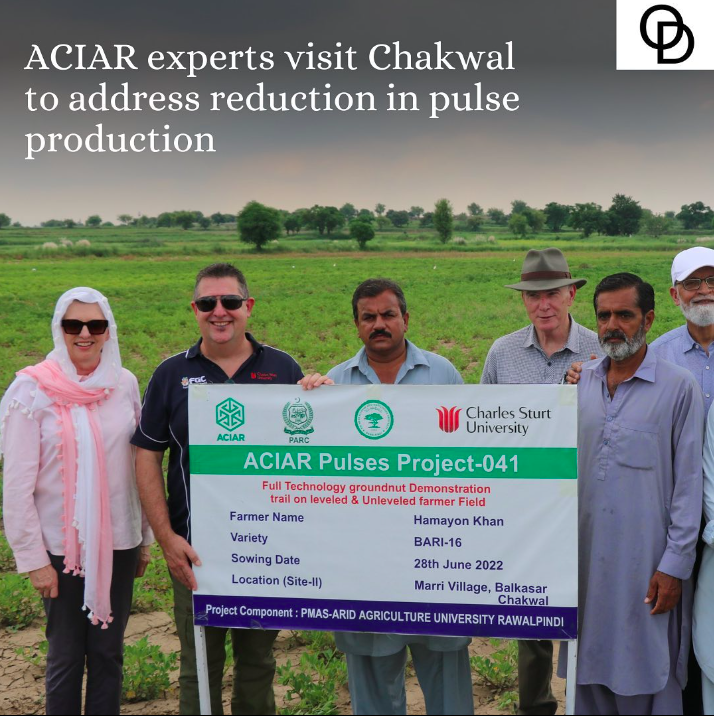Australia started years ago the ACIAR Project in Pakistan to enhance production and profitability of legumes in Pakistan so that the decline of production can be reversed.
Demand for pulses in Pakistan, as in other South Asian countries, outpaces supply due to declining production over the last 20 years. Despite relatively high prices, legumes, especially chickpea and lentils, have been progressively pushed out to the most marginal lands.
This project aims to identify agronomic factors limiting the productivity and profitability of lentils, chickpeas and groundnut, and evaluate possible solutions, mostly through farmer led research and demonstrations of suitable innovations; increase opportunities for farmers to undertake post-harvest value addition to chickpea, lentil and groundnut crops; develop and evaluate, in partnership with farmers, site specific village-based seed production and dissemination systems to facilitate access to improved varieties; and disseminate the learning and practices from the project activities to other farmers and private-sector participants, such as input suppliers and potential service providers.
This week Australian experts visited Chakwal to address the decline of pulses production in Pakistan.
Expected project outcomes as follow:
- Increased lentil, chickpea and groundnut production and value addition in cereal cropping system, helping to sustainably meet increasing demand for high-quality legumes in Pakistan.
- Less reliance on fertiliser to grow cereal crops due to improved nitrogen soil levels.
- Credible evidence influencing policy change in favour of lentil, chickpea and groundnut production.
- Increased crop productivity thanks to access to quality seed from better adapted varieties, helping to improve the ability of farmers to maintain and further improve their farming systems.
- Increased income due to post-harvest value addition.
















